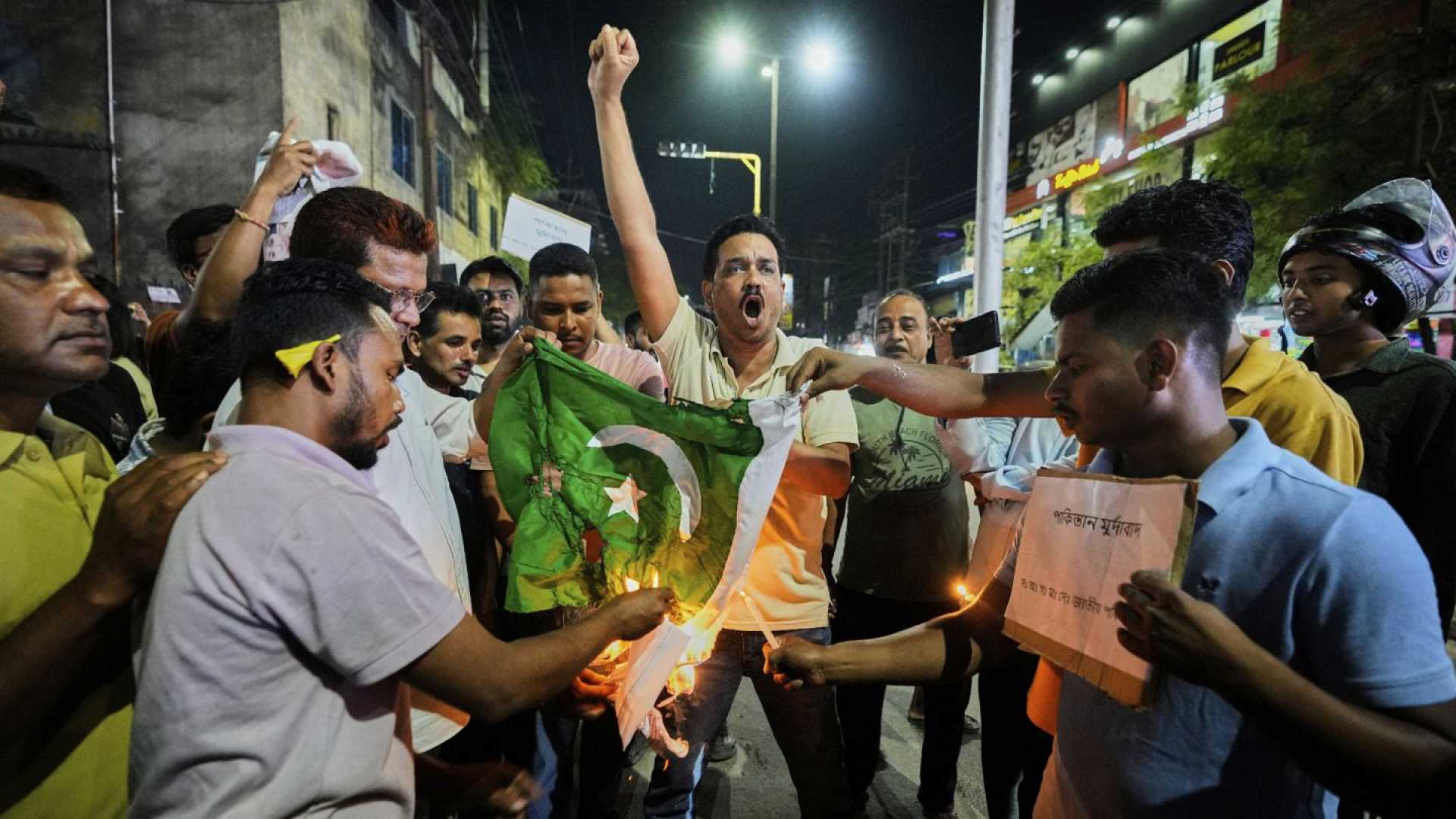News
Pressure Mounts on Modi to Respond to Kashmir Attack

New Delhi, India — Following a deadly shooting spree in Kashmir last week, public outcry for military action against Pakistan has intensified. On Tuesday, 25 tourists and one local guide were killed by militants in the Baisaran valley, marking the deadliest attack on civilians in Kashmir in over two decades.
Survivors reported that the gunmen specifically targeted Hindu men, which sent shockwaves across the predominantly Hindu nation. Sunil Singh, a local shopkeeper, expressed the frustration of many in India: “Those terrorists and their supporters should be shot dead, and their houses should be blown up.”
The attack has placed immense pressure on Prime Minister Narendra Modi and his Hindu nationalist government to retaliate. Modi vowed to “identify, track and punish every terrorist and their backer,” which many interpret as a call for direct military action against Pakistan, a long-accused supporter of insurgency in Kashmir.
Amid growing tensions, India has suspended the Indus Waters Treaty, a critical water-sharing agreement with Pakistan. The government has also expelled Pakistani diplomats and banned several Pakistani YouTube channels, further escalating hostilities.
At the busy Lajpat Nagar market in Delhi, calls for stronger action resound. “Our military should go all out to teach them a lesson,” Singh declared. Sanjiv Mehra, a retail businessman, echoed this sentiment, stating, “There must be a military strike not only on the people who carried out this attack but also those who are training them in Pakistan.”
Despite the potential for conflict, Indian officials aim to contain military action to avoid a full-scale war with Pakistan, both of which are nuclear-armed nations. Analysts suggest Modi’s government views this moment as a pivotal opportunity to bolster its image.
The attack disrupted even the once peaceful tourism in Baisaran. Local guides shared harrowing accounts of fleeing tourists and provided urgent aid.
Calls for boycotts against Kashmiris and Muslims have surged in the aftermath, emboldened by nationalist groups linked to Modi’s Bharatiya Janata Party (BJP). Vishnu Gupta, leader of the Hindu Sena group, warned of dire consequences if the government does not act decisively.
The recent violence has revived fears of anti-Muslim sentiments in India. A Kashmiri engineering student, speaking anonymously, described his terrifying experience in Punjab where he was threatened and attacked due to his ethnicity.
As military searches for the perpetrators continue, more than 1,500 people in Kashmir have been detained. Draconian measures include demolishing homes linked to militants, which locals have termed “bulldozer justice.” Fareeda Banu recounted how government forces destroyed her home in a night raid, leaving her family traumatized.
In contrast, Kashmiris held candlelit vigils for peace, calling for understanding rather than revenge. Omar Abdullah, the region’s elected official, urged the government to avoid further alienation of innocent people.
As tensions flare between the two nations, both governments face intense scrutiny and criticism not only for their handling of the crisis but also for the social repercussions affecting the Kashmiris and broader Muslim community.












